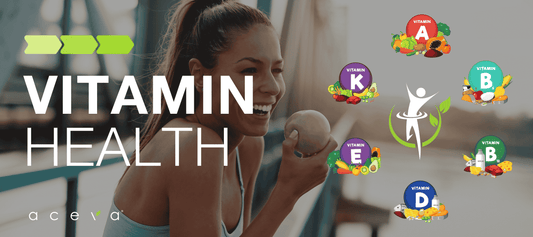
“Organic” is no longer a trend, it’s a household term. From foods to skincare products to clothes, you can find organic products nearly everywhere. But is “organic” worth the hype - or the price tag? Here we’ll cover the basics behind the term organic and share some simple tips for getting the best bang for your budget.
What Does Organic Really Mean?

These days, foodie buzzwords have taken over the supermarket shelves. It can be tricky to know what words have meaning and what’s just lingo.
When it comes to the word “organic,” however, there’s are some standards. For a food to be labeled as organic, it must be grown without the use of synthetic pesticides, synthetic fertilizers, ionizing radiation, hormones, or antibiotics. It cannot have undergone any bioengineering or genetic modification.
When shopping for organic foods, look for the word “organic,” certified by the NOP (National Organic Program). To earn this label, a farm must adhere to rigorous USDA organic farming standards and undergo a third-party inspection and certification.
Why Choose Organic Foods?
In general, organic foods are considered healthier, cleaner, and more sustainable than conventionally grown foods. The lack of synthetic materials means that you are less likely to ingest any harmful chemicals or toxins.
Instead of relying on potent fertilizers or pesticides, organic farmers work hard to recreate a natural growing environment. They care for the soil as much as they care for the plants they grow in it, using methods like composting and crop rotation to nurture and sustain the earth.
These methods may not produce the quick results, gigantic sizes, or “perfect” looking fruits and vegetables that conventional farming practices provide, but organic farming has a better long-term outcome. The soil is restored instead of depleted, crops become naturally resistant to pests and disease, and the surrounding ecosystems are not burdened with hazardous farming waste.
How to Shop for Organic Foods On a Budget

Organic foods do tend to be more costly, but that doesn’t mean you can’t shop organic while sticking to a budget. Here are some ways tips to make your organic dollars go further.
Focus on the Dirty Dozen
Choosing just the most important foods to buy organic is a great way to focus your shopping budget. The Environmental Working Group recommends starting with “The Dirty Dozen” - a list of the most important foods to buy organic. These foods are typically farmed with the most pesticides, fertilizers, and other chemicals. The current lists states these produce items are the best to splurge on:
- Strawberries
- Spinach
- Kale
- Nectarines
- Apples
- Grapes
- Peaches
- Cherries
- Pears
- Tomatoes
- Celery
- Bell and hot peppers
Define Your Why
If you have a limited amount to spend on organic produce each week, you may want to consider why you want to shop organic. This will help you invest your money into the foods that will give you the best benefit.
For instance, if your biggest concern is health, sticking to buying organic foods from the dirty dozen list will get you close to your goal of chemical-free food without breaking the bank.
If your biggest concern is the planet, focus on buying foods organic that are traditionally damaging to the earth, like coffee or beef.
If you are a big animal rights supporter, focus your budget on buying meat and eggs from organic brands with humane practices.
Choose Organic Store Brands
Many store brands now have their own organic products, and this can be a great way to get organic goods for less. Try Aldi’s Simple Nature, Target’s Simply Balanced, or Walmart’s Wild Oats Marketplace lines.
Shop Local

To really make your dollars count, consider buying organic produce from local farms. These products might be more expensive than what you’ll find at the supermarket, but you’ll be directly impacting your local community. Plus, your local farmers will have excellent insider tips on how to cook creatively with your fresh organic produce!
Go Wild with New Foods
Many foods are now grown organically, so why not try something new? In addition to shopping for your go-to fruits and vegetables, consider adding one new organic item to your grocery list each week. You’ll grow your culinary prowess while enjoying new flavors and reaping the health benefits of a new healthy food.
Absolute Greens: The Easiest Way to Get Your Fruits and Veggies
At Aceva, we know how important it is to eat a healthy diet packed with vibrant, organic produce. But we also know that getting all the recommended fruits and veggies can be quite a challenge!
We wanted to make getting your daily greens (and reds, and oranges, and purples!) as easy as possible. That’s why we created Absolute Greens - a scoopable blend of dozens of healthy fruits and vegetables to support your health from the inside out.
Absolute Greens makes getting your fruits and veggies simple. Each scoop of our unique 50-superfood blend offers 10 full servings of organic fruits, vegetables, herbs, spices, enzymes, fibers, and flavonoids. Drink a glass of Absolute Greens in the morning, and you’ll be plant-powered for the whole day!
Go Organic, Go Greens
It’s never too late to start shopping smarter and eating healthier. By choosing organic, you can ensure the foods you eat are healing, not harmful
At Aceva, we strive to help you make healthy living simpler and more enjoyable. Simplify your life and give your health an organic boost with Absolute Greens today!




